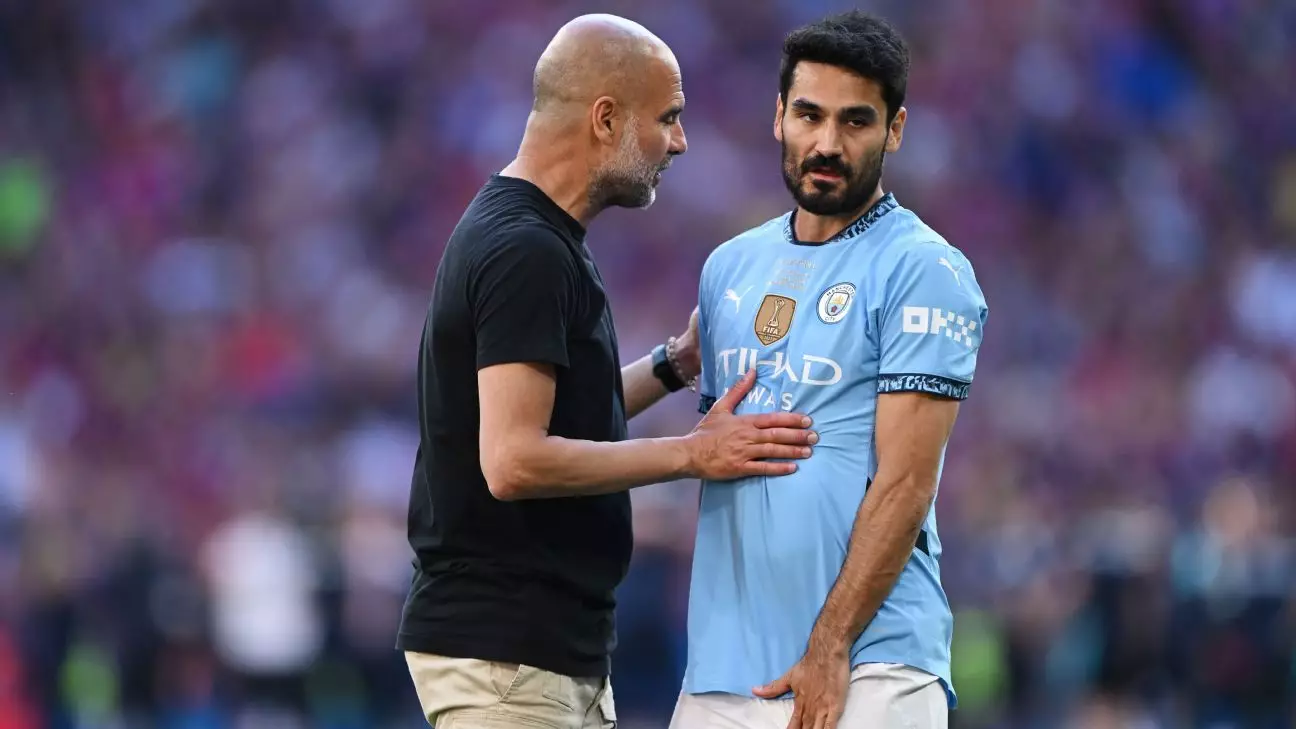In the competitive realm of football, the importance of squad management cannot be overstated. Pep Guardiola, the astute manager of Manchester City, is acutely aware of the challenges that come with a sprawling roster. His recent comments shed light on a crucial aspect of his managerial philosophy: the emotional well-being of players. By hinting at a potential thinning of the squad ahead of the transfer window’s closure, Guardiola champions a refreshing approach—ensuring that every player feels valued, seen, and engaged. In a world where benchwarmers often languish in disappointment, Guardiola’s inclinations reveal a deep understanding of the psychology behind performance.
Guardiola’s assertion about not wanting “sad” players illustrates a fundamental belief that happiness and engagement are integral to a thriving team. His comments resonate with coaches and fans alike, as they underline a critical reality—players who are consistently sidelined experience a profound dip in motivation and may ultimately hinder team dynamics. Instead of simply amassing talent, Guardiola’s desire to maintain a squad under 23 players indicates a preference for quality over quantity. It’s a principle that not only prioritizes competitive performance but also fosters a culture of enthusiasm and investment among the players.
Recent Additions and Their Integration
Manchester City’s recent influx of new talent—including Rayan Cherki, Rayan Aït-Nouri, Tijjani Reijnders, and Marcus Bettinelli—injects an exhilarating vibrancy into the squad. However, for Guardiola, the challenge lies not just in onboarding these players but in seamlessly integrating them into a set framework that respects existing team chemistry. This process is particularly crucial when considering the skill sets of seasoned players such as Ilkay Gündogan, who faces intensified competition with the return of core players like Rodri.
Guardiola’s proactive approach, advocating for a streamlined roster, suggests he is not merely focused on the short-term gains of exploiting such talent, but rather on building a cohesive unit capable of sustained success. Each new signing must have a well-defined role and expectation, ensuring they contribute significantly to the team’s overarching strategy. This consideration for harmony within the squad aligns with Guardiola’s historical success, wherein he has consistently prioritized a collaborative playing style over individual prowess.
The Importance of Clarity in Strategy
A significant aspect of Guardiola’s management is communication. Throughout the interview, he made a striking observation regarding the lack of player satisfaction when too many individuals vie for limited playing time. Clarity of strategy becomes paramount when building a bronzed, unified team. His reluctance to entertain uncertainty regarding player futures demonstrates a desire for transparency, fostering trust between himself and the squad.
In addressing the uncertainties surrounding Gündogan’s position, Guardiola’s ambiguous response speaks volumes. By not disclosing any definitive actions regarding the player’s future, he maintains an air of professionalism while simultaneously protecting team morale. This prescient way of dealing with potential departures amplifies tension while ensuring players remain focused on their responsibilities during the intense pre-season period. It’s a careful balancing act that underscores the nuances involved in managerial decision-making.
Vision for the Upcoming Season
With the Premier League season fast approaching, Guardiola’s vision for Manchester City will rely heavily on how he navigates the complexities of squad adjustments. His past experiences have shown an undeniable commitment to refining the team structure, ensuring that the collective ethos remains centered around performance and camaraderie. As he has hinted, a successful season cannot merely rely on an abundance of talent; elements like player satisfaction, competitive spirit, and shared ambitions will be critical.
The challenge lies within the delicate interplay of maintaining a robust roster while also fostering an environment where every player feels valued. Guardiola’s proactive methods indicate a refreshing direction that prioritizes both talent acquisition and emotional engagement. This season will not only test Manchester City’s tactical robustness but also serve as a litmus test of Guardiola’s evolving philosophy on player management in the high-stakes world of elite football. As the transfer window draws to a close, one thing is clear: Guardiola is poised to make decisive moves—both for the sake of his players and the legacy of the club.

